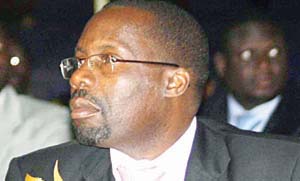President Mugabe can shape Africa’s rise

Christopher Farai Charamba Correspondent
President Mugabe in his capacity as the current African Union chairperson, has been invited by his Malawian counterpart President Peter Mutharika to chair a meeting of African countries on youth empowerment on the side lines of the 70th United Nations General Assembly in New York later this month. On a
continent where close to 65 percent of the population is under the age of 35 and over 35 percent between the ages of 15 and 35 years, it is important for Africa to take youth empowerment seriously. According to African Economic Outlook (AEO), of Africa’s unemployed, 60 percent are young people and youth unemployment rates are double those of adult unemployment in most African countries.
Such a situation leaves African youth extremely vulnerable and where they make up the majority of the population it puts a strain on the adult population and is likely to increase poverty.
Policies that focus on youth empowerment are therefore essential to developmental growth on the continent. The Africa Rising narrative is encouraging in terms of economic growth, however, this must not be confused with developmental growth as a significant proportion of the continent’s population remains in need and the gap between rich and poor widens.
The World Bank says that empowerment is the process of increasing the capacity of individuals or groups to make choices and to transform those choices into desired actions and outcomes. African governments should actively pursue avenues that increase the capacity for young people to create, to participate and to thrive in their environments.
One can look at the policies proffered by President Mugabe and his Government as means through which African youth can be empowered. The Land Reform Programme at the turn of the century and the indigenisation policies of the Zimbabwean Government are instruments that focus on empowering Zimbabweans.
The fact that Zimbabwe merged the idea of indigenisation and youth empowerment together through the Ministry of Youth, Indigenisation and Economic Empowerment shows that the Government recognises the need for Zimbabwean youths to be empowered and the role that indigenisation plays in this aspect.
On May 24, 1963 the day before the Organisation of African Unity (OAU) was founded, Ghana’s first President Kwame Nkrumah recognised the importance of economic independence in Africa.
In a speech given in Addis Ababa he said, “Independence is only the prelude to a new and more involved struggle for the right to conduct our own economic and social affairs; to construct our society according to our aspirations, unhampered by crushing and humiliating neo-colonialist controls and interference.”
Nkrumah’s words were certainly prophetic as in the post-colonial period Africa has found itself under siege from countries advancing neo-colonialist policies on the continent. Despite the onslaught, President Mugabe has remained resolute in his resolve “to construct our society according to our aspirations.”
At the founding of the OAU, Ethiopian Emperor Haile Selassie the first chairman of the continental body said, “Those men who refused to accept the judgment passed upon them by the colonisers, who held unswervingly through the darkest hours to a vision of an Africa emancipated from political, economic, and spiritual domination, will be remembered and revered wherever Africans meet.”
President Mugabe can be considered one of those men who Emperor Selassie spoke about as illustrated by his commitment to uphold the founding values of the OAU and vision of its leaders in 1963 by carrying forward policies that seek to empower the people of Zimbabwe.
The invitation to chair the youth empowerment meeting in New York is an example of how he is revered across the continent by other African leaders.
Not only is this true of his counterparts, but even young people on the continent have expressed their admiration of President Mugabe. One of South Africa’s rising young leaders Economic Freedom Fighters president, 34-year old Julius Malema said earlier this year that President Mugabe was the only African leader who “holds the continent together.”
“We may not agree with him on this or that issue, but on a broader perspective, he’s the man that represents the kind of Africa we want. . . An Africa where Africans own their land and their economy,” Malema added.
Such praise from one of Africa’s young emerging leaders highlights the inspiring role President Mugabe plays to young people on the continent, particularly when it comes to the empowerment of African people.
Former SWAPO Youth League Spokesperson and leader of the Affirmative Repositioning movement in Namibia, Job Amupanda is another young leader who has been inspired by President Mugabe saying last year that “Zimbabwe under the leadership of Cde Mugabe is the bravest on the African continent…
“We come here to proclaim to youths that we are inspired by the fact that Zimbabwe is the only SADC country that fully owns its country and economy. We are proud that it is the only country that has successfully managed to deal with the forces of neo-colonialism.”
It is important for Africa’s young people to continue to be inspired by leaders on the continent particularly those that advance the Africa for Africans narrative. What should not be left out however is for those leaders to support the African youth and give them the right platforms for them to achieve their personal goals.
African governments are therefore encouraged to develop policies that support youth activities and encourage youth empowerment. More important however should be the implementation of these policies as this aspect can fall short and programmes end up benefiting the elite few rather than the masses.
As African leaders meet in New York later this month to discuss youth empowerment they should also recognise the need to engage the youth to understand their specific needs rather than impose policies on them.








Comments